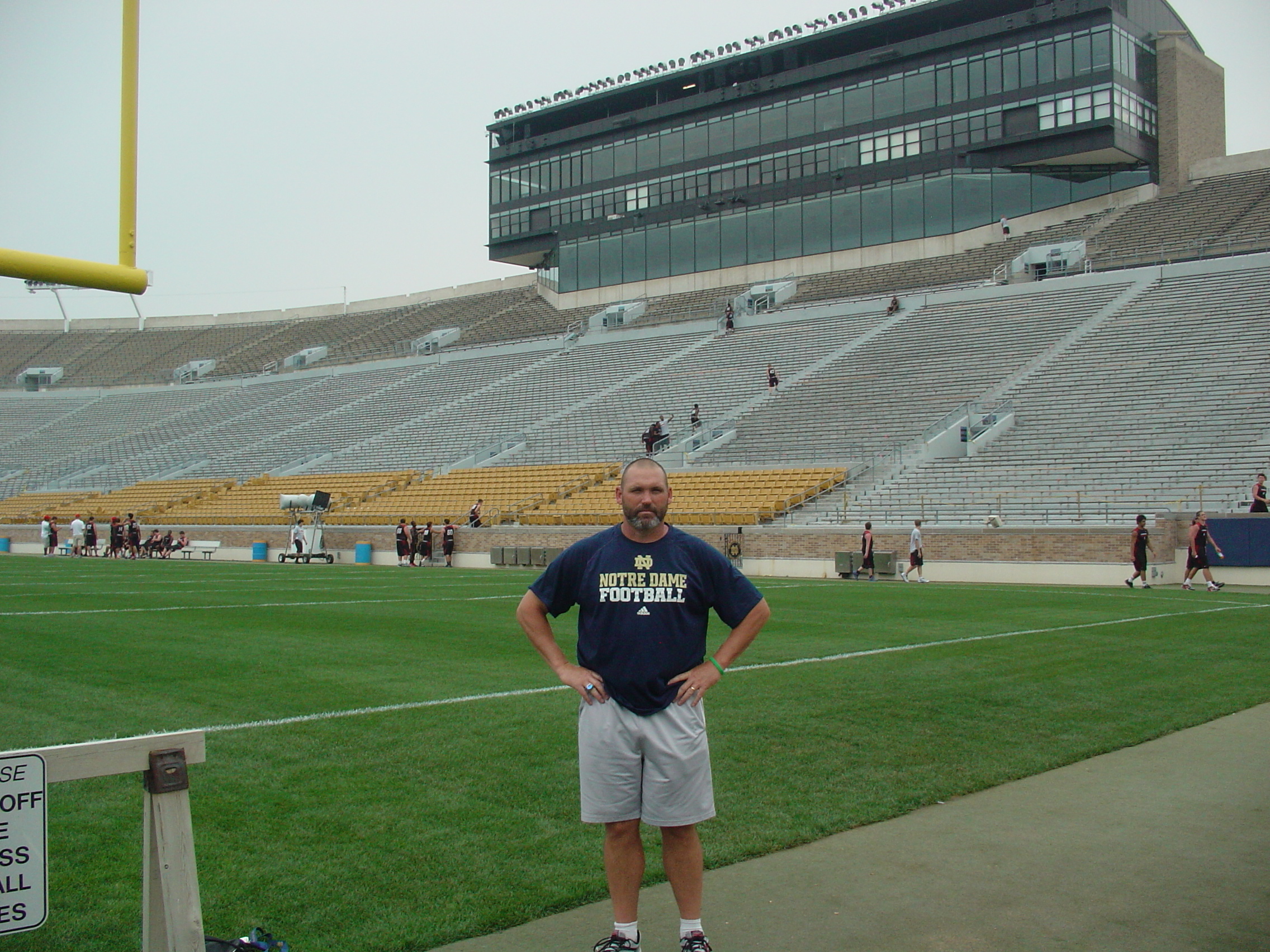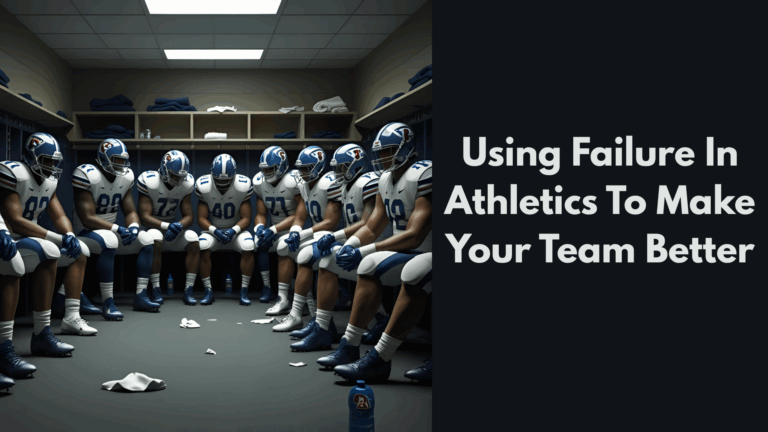
Aaron Meschuk is a great friend of mine. I’ve known him for about ten years. We’ve worked together in the same league as Athletic Directors, and we are 1-1 against each other on the football field! He is the Athletic Director and Head Football Coach at St. Michael’s Prep in Silverado, California. For the past seventeen years, he has coached at the NCAA Division III and high school level. Fifty-eight student-athletes who have been selected All-District or All-League under his guidance and coaching. Twelve years as Head Coach, he has won one league championship, two league runner-ups and four playoff appearances. In addition, four student-athletes have been selected League MVP and/or Offense or Defense League MVP. Six former student-athletes have played at the NCAA Division I – III level including one who lettered for University of Southern California. Coach Meschuk, was a starting Fullback at Citrus College and Chapman University. He holds a Bachelor of Arts in History and Master of Arts in Athletic Administration from Concordia University. His professional coaching goal is to become an assistant coach at the University of Notre Dame and/or the United States Military Academy at West Point.
This past June, I had the opportunity to volunteer as a visiting coach for the University of Notre Dame Summer High School Football Camp. This was my third year volunteering for the Fightin’ Irish and without a doubt, one of the most memorable experiences. Present were eight visiting coaches from colleges and high schools throughout the country who assisted the Notre Dame coaching staff with 600 + athletes. It was four days long with twelve practices; I was one of eight visiting coaches under the leadership of Running Back Coach Tony Alford. We instructed ninety high school athletes in proper running back fundamentals and techniques.
Coaching has expanded far beyond the X’s and O’s; its about the overall development of a student-athlete. This is not limited to just academics and athletics; it includes the social, spiritual development and guidance we provide for athletes. There are many outstanding qualities associated with effective leadership, and with that, there were four lessons I learned this past camp which are essential to every leader.
First, a leader must accept opportunities when they are presented.
Opportunities allow a leader to display their knowledge as well as their leadership skills when instructing. Although opportunities may take us out of our comfort zone, it will allow us to exhibit our skills regardless of success or failure. Opportunities reinforce what we believe are important and provide areas of improvement in our leadership skills.
Second is Risk.
Risk is not necessarily danger; it can also be associated with faith. Faith is having the confidence and the belief in your natural abilities. Athletes look to coaches to lead them through times of uncertainty. As leaders, we must be willing to remove ourselves from our own comfort zone and explore the unknown. I have done this throughout my twelve years as a head coach when adapting new offensive formation and plays to meet the needs and/or talent level of our athletes.
Third, is professional development growth.
Football is a constantly revolving door with new formations, schemes and approaches to game. In terms of leadership, it is important we seek to grow personally and professionally. We are not changing our principles nor philosophy which are our foundation, instead we must be eager to learn and adapt new techniques and fundamentals which may improve the overall success of our athletes.
Finally, an effective leader must have a strong spiritual foundation.
My spiritual foundation was molded by my high school football coach. Under his leadership and mentoring, the life lessons which I learned over twenty years are still applied today to the athletes I coach. It is important to have a foundation built upon biblical principles because it provides a framework of our coach’s philosophy. In my opinion, without a strong spiritual foundation, effective leaders limit themselves in the areas of accepting opportunities, risk and professional developmental growth.







